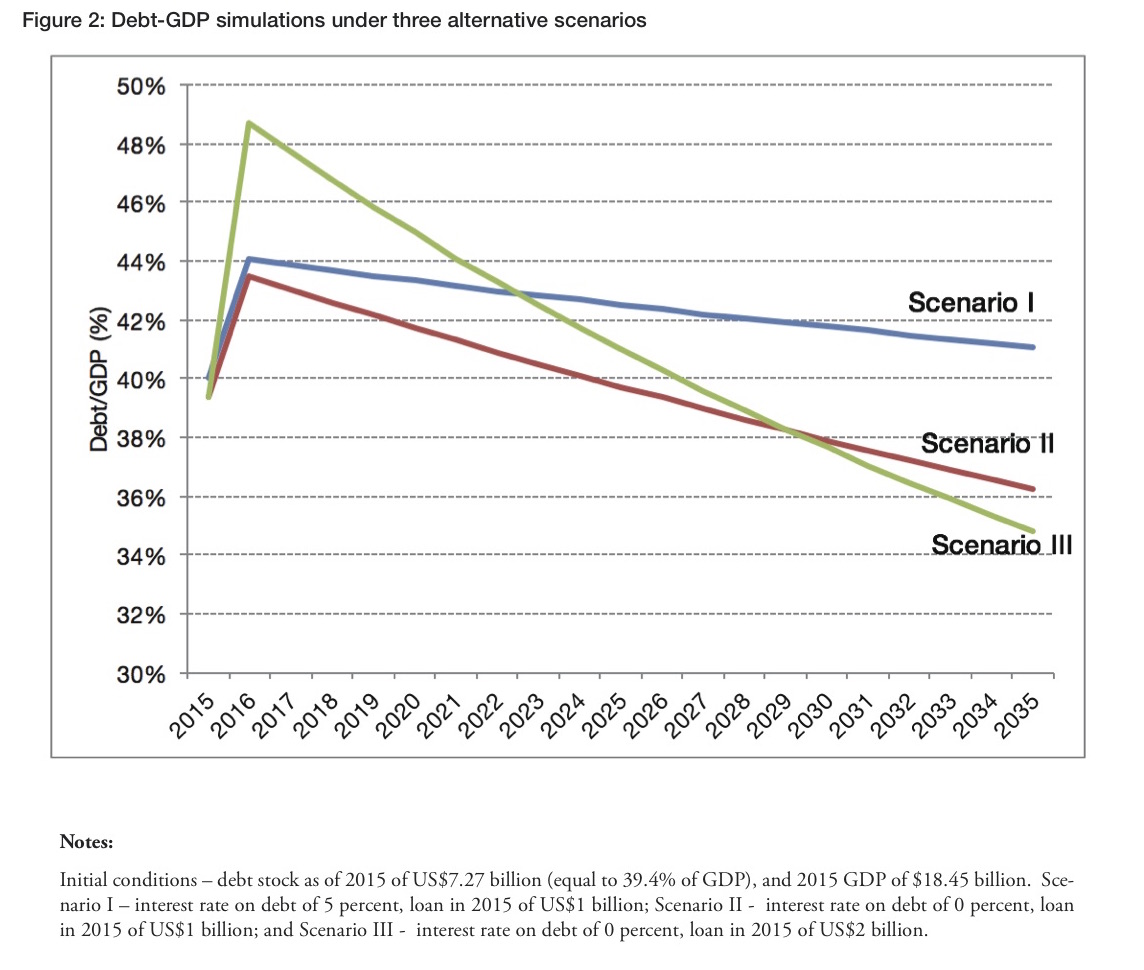Papua New Guinea’s debt levels, relative to the size of its economy, could actually go down if the government increased spending according to Satish Chand, Professor of Finance in the School of Business at the University of New South Wales. Mounting an argument that goes against IMF advice, he contends that as long as the government investment is well managed and receives a strong return, the long term benefits will outweigh any short term risks.

Professor Satish Chand
In a paper for the National Research Institute, Chand comments that PNG is facing a rise in budget deficits and an increase in its public debt. He expects the legislated ceilings set out in the Fiscal Responsibility Act (FRA) will be breached in 2016 and for the foreseeable future. But he believes the PNG government can justify a change to the debt ceiling.
Chand says the PNG Treasury has been advised by the International Monetary Fund (IMF) to cut expenditures. ‘This has been done, but is unlikely to see an improvement in the fiscal position soon,’ he comments.
‘Rather, further cuts to public expenditure, as advised by the IMF, runs the risk of reducing access to basic service, which in turn will have a detrimental impact on GDP and on the already poor social indicators of development.’
Development and growth
Chand told the Australia Papua New Guinea Business Forum that PNG’s debt is comparatively low compared with other lower middle income countries. ‘PNG has more or less kept pace with its much richer East Asia Pacific developing nations,’ he said. ‘So at least in terms of debt servicing, PNG is not a highly indebted nation. The development challenge is a lot greater than the fiscal challenge.’
Chand’s argument for greater levels of government expenditure rests on the assumption that it is possible to get a higher return on the capital than the cost of borrowing.
Chand says 40 per cent of PNG households have expenditure which is deemed as being less than what is acceptable to provide the minimum calories. ‘Forty-five per cent fail to complete primary school, even after the free education policy. Imagine going out in the world without having any basic education?
‘Infant mortality is bad. Life expectancy is poor. There are massive infrastructure needs. Only 18 per cent of the population has access to electricity; 19 per cent (of households) have sanitation; only 40 per cent of households have access to an improved water source.
‘The country’s infrastructure needs are much, much greater than its neighbours if you compare this to many of the lower middle income countries.’
Higher return
Chand’s argument for greater levels of government expenditure rests on the assumption that it is possible to get a higher return on the capital than the cost of borrowing. He says it is possible to get a 20 per cent return on the investment; if the money was borrowed privately, the interest cost is likely to be about 5 per cent.
If the money was a concessional loan from a multilateral organisation, the benefits would be felt even more quickly, believes Chand. Because the interests costs would be negligible, the net return would be higher and the reduction in PNG debt relative to the size of the economy would be quicker.

Satish Chand’s three debt scenarios. Source: National Institute of Research
‘If we, say, expand the investment to US$2 billion—which I think is probably the maximum given the absorptive capacity of the economy—that would lead to a spike in the initial debt,’ said Chand. ‘But then it would lead to a fall in the debt to GDP ratio that would be much faster.
‘If we are smart, we will engage in investments that will achieve development, while also helping us address the fiscal challenge. The key question we have to ask is how do we make sure that the money is not pissed against the wall? That is the billion dollar question.’
Safeguards
Chand says the best way to ensure good governance is to use more than one multi-lateral organisation. ‘For argument’s sake, let’s say the Asian Investment Infrastructure Bank gave us the money. Then we would get the World Bank, or the Asian Development Bank, to monitor the deliverable.
‘We also want this audit to be tabled in parliament. It should also be given to the public. If we use transparency, and we have these audits tabled in parliament, and we give it to the public, then I think there would be a fair bit of assurance that it won’t be wasted.’
Chand said the Fiscal Responsibility Act, which legislates limits of PNG’s debt levels, is not a guarantee against fiscal irresponsibility. ‘It helps, but we have to think a bit more than that. We need to expand investments into infrastructure funded through concessional foreign debt. And I think the time is now, given the access to cheap finance—and, more importantly, access to cheap materials.’
The Chand solution
Using debt finance for public investments so as to attain fiscal sustainability over the long term requires three necessary ingredients:
(i) projects with high rates of return are selected;
(ii) finance at the lowest possible cost is accessed; and,
(iii) quality deliverables are produced.
Data on the first exists within the National Department of Planning and Monitoring. On the second, PNG is eligible for concessional finance from multilateral development banks. And on the third, technical expertise from the non-financing MDBs could be used for monitoring and evaluation.
Source: National Research Institute paper








Speak Your Mind